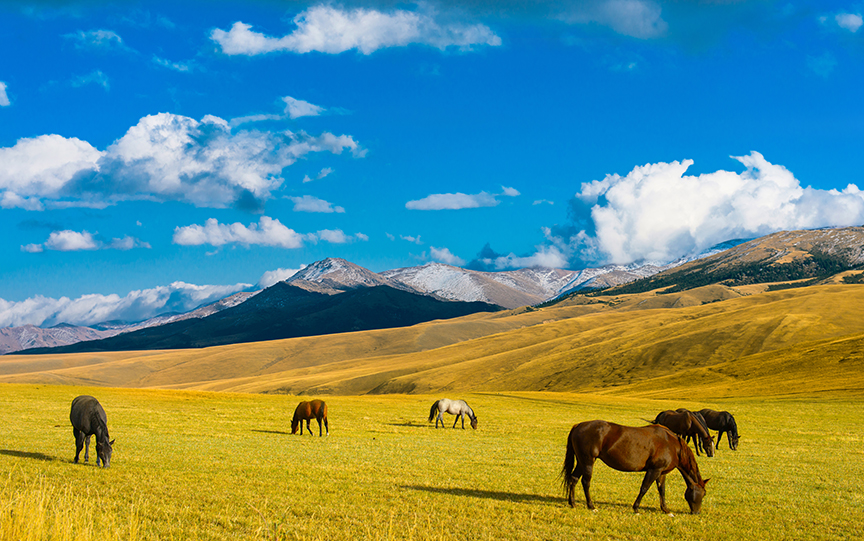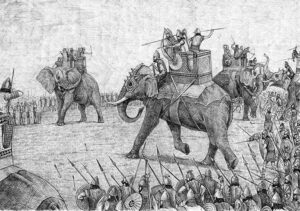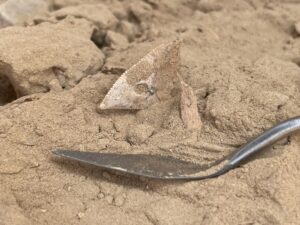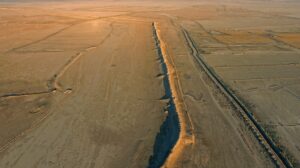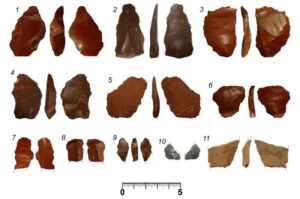The domestication of horses was not a single event. There is archaeological evidence of humans riding horses 5,000 years ago. But all domestic horses come from the Pontic-Caspian Steppe of Bulgaria, Ukraine, and Russia in the third millennium. Now researchers have pinpointed exactly when this horse took over and the Age of Horses properly began.
DNA analysis shows that one type of horse suddenly became dominant across Eurasia 4,200 years ago. This suggests that this is when domestic horses began spreading across the world. One particular feature of this horse made it so useful to humans. A genetic mutation slightly changed the shape of its back, making it easier for humans to ride them.
“Clearly, this horse type that was local became global very fast,” said study co-author Ludovic Orlando.
Within 300 years, the horses found in Spain were identical to those first seen in Russia.
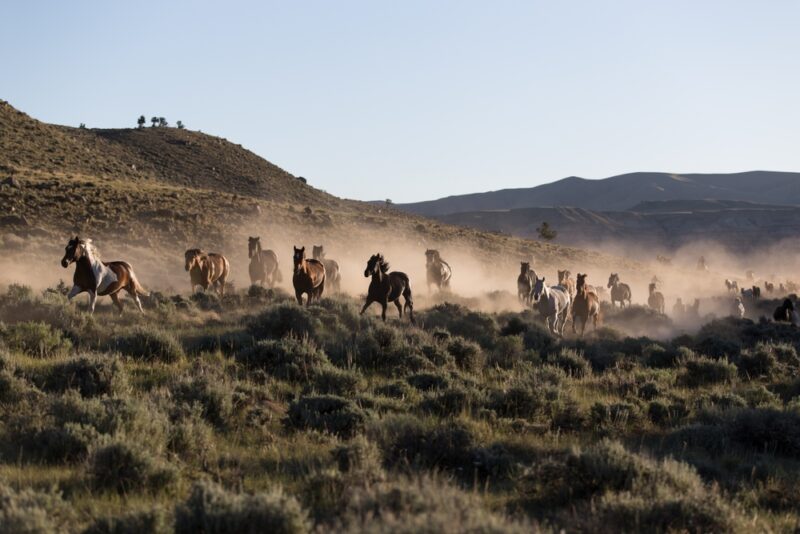
Photo: Shutterstock
Radiocarbon dating and DNA sequencing let researchers create a timeline of genomes and genetic transformations. They then identified when the ancestors of modern horses started to spread out of their native regions, the earliest signs of intentional breeding, and shifts in horses’ reproductive lifespan. All three date back to approximately 4,200 years ago.
Rapid spread
Human breeding caused horse populations to increase far more rapidly than they would have naturally. They became integral to human life. Until the late-19th and early 20th centuries, horses were the fastest way of traveling on land. The researchers believe that the Sintashta, a Bronze Age people, first domesticated horses in the region. They tamed their native horses and used them to trade and expand their territory.
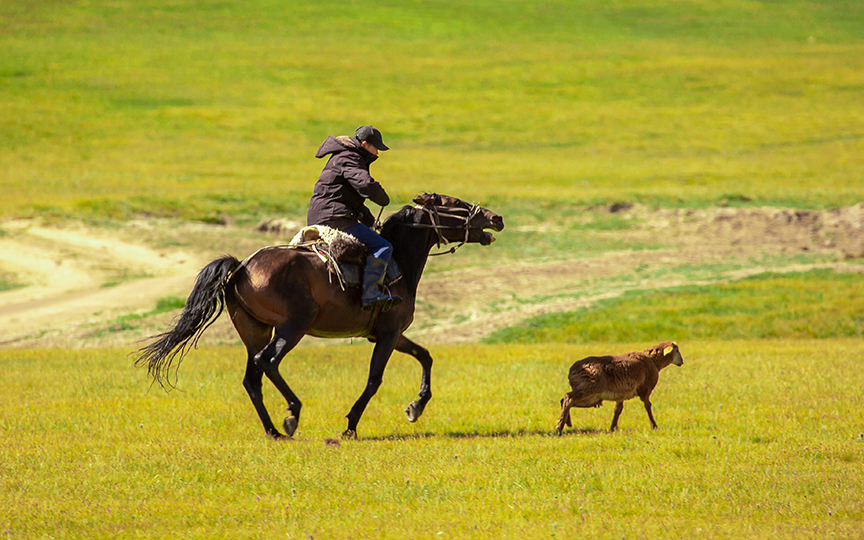
A mounted shepherd herds a sheep. Photo: Shutterstock
But this particular group of people seems to be the driving force for this line of horses spreading across Eurasia. The subsequent decrease in the gene pool also occurred far more quickly than it had previously with dogs and cattle.
“Humans changed the horse genome stunningly quickly, perhaps because we already had experience dealing with animals,” geneticist Laurent Frantz, who was not part of the study, told The Independent.
